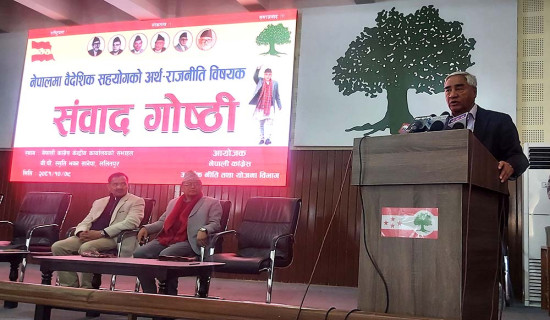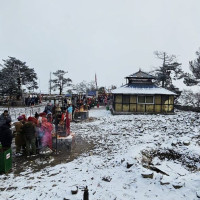- Thursday, 23 January 2025
Syria's rebels loom large as new rulers try to form national army
Nawa, Syria, Jan. 23: As insurgents raced across Syria in a surprise offensive launched in the country's northwest late last year, officials from several countries backing either the rebels or Syria’s government met in Qatar on what to do.
According to people briefed on the Dec. 7 meeting, officials from Turkey, Russia, Iran and a handful of Arab countries agreed that the insurgents would stop their advance in Homs, the last major city north of Damascus, and that internationally mediated talks would take place with Syrian leader Bashar Assad on a political transition.
But insurgent factions from Syria’s south had other plans. They pushed toward the capital, arriving in Damascus’ largest square before dawn. Insurgents from the north, led by the Islamist group Hayyat Tahrir al-Sham, arrived hours later. Assad, meanwhile, had fled.
HTS, the most organized of the groups, has since established itself as Syria’s de facto rulers after coordinating with the southern fighters during the lighting-fast offensive.
Wariness among the southern factions since then, however, has highlighted questions over how the interim administration can bring together a patchwork of former rebel groups, each with their own leaders and ideology.
HTS leader Ahmad al-Sharaa has called for a unified national army and security forces. The interim defense minister, Murhaf Abu Qasra, has begun meeting with armed groups. But some prominent leaders like southern rebel commander Ahmad al-Awda have refused to attend.
Officials with the interim government did not respond to questions.
The southern province of Daraa is widely seen as the cradle of the Syrian uprising in 2011. When anti-government protests were met with repression by Assad’s security forces, “we were forced to carry weapons,” said Mahmoud al-Bardan, a rebel leader there.
The rebel groups that formed in the south had different dynamics from those in the north, less Islamist and more localized, said Aron Lund, a fellow with the Century International think tank. They also had different backers.
“In the north, Turkey and Qatar favored Islamist factions very heavily,” he said. “In the south, Jordanian and American involvement nudged the insurgency in a different direction.” (AP)








-square-thumb.jpg)







